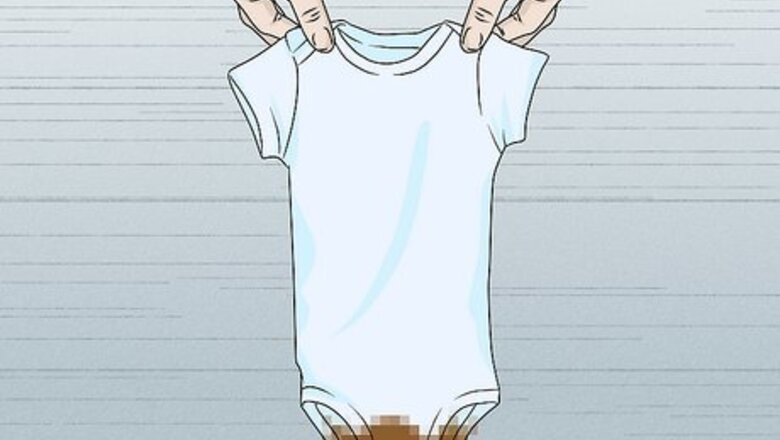
views
Remove your baby’s soiled clothing quickly.
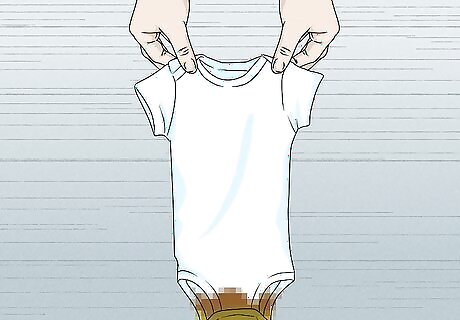
The faster you start treating the stain, the better the result. Poop stains, especially the yellow kind from breastfed newborns, can be tougher to remove when they set in. Quickly remove the clothes from your baby and place them in cool water if you can’t immediately treat the stain. This will keep the stain from setting in.
Scoop the poop out of the clothes.
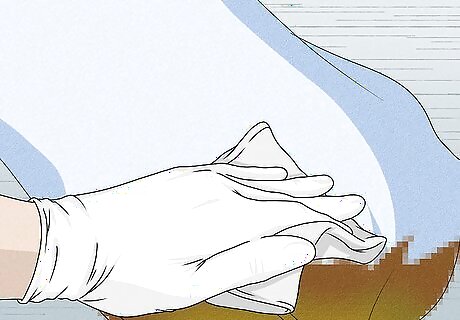
Removing solid poop by hand makes cleaning much easier. Since washing the clothes with a lot of poop on them can cause the poop to spread, use a paper towel or baby wipe to take out as much poop as possible. Gently pick the poop off the clothes, trying not to rub it in, as this can make the stain worse.
Rinse with cold water from the clean side of the clothes.
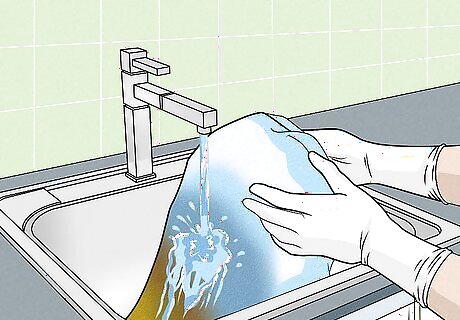
Cold, running water can wash away additional poop particles. Take the clothes to a sink, then turn on the cold water faucet. Let the stream of water pour through the side of the clothes that wasn’t pooped on, so that it can push additional poop particles down the drain. The running water will help you remove more poop than you may have been able to reach by hand. If the poop stain is very small, you may be able to remove it entirely at this point by using a generous amount of normal dish soap. Lather the dish soap over the poop stain while its wet to form a foam, then wash it off.
Pre-treat the stains.
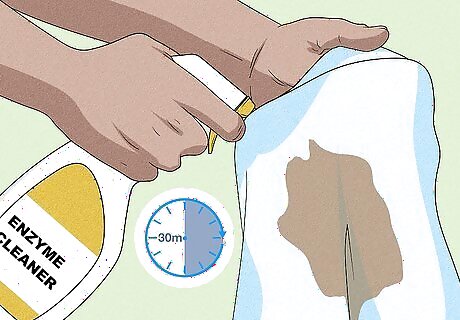
Pre-treat the poop stains for 30 minutes to break them down. Since poop stains are protein-based, it’s best to use an enzymatic cleaner. Spray the enzymatic cleaner on the stains, and allow it to sit for about 30 minutes. The cleaner will break down the protein particles in the poop, allowing it to wash off much more easily. Many parents swear by Fels Naptha as a miracle when cleaning up poop stains. When the clothes are wet, rub this laundry bar on the stain and allow it to sit for a few minutes. If the stain is older or more set-in, soak the clothing in the enzyme cleaner for several hours or overnight. For heavy-duty poop stains, you may need a more intensive pre-treatment. If there’s a lot of poop, soak the clothes in a bucket of hot water mixed with a scoop of OxiClean for a couple of hours.
Run the clothes through a machine wash cycle.
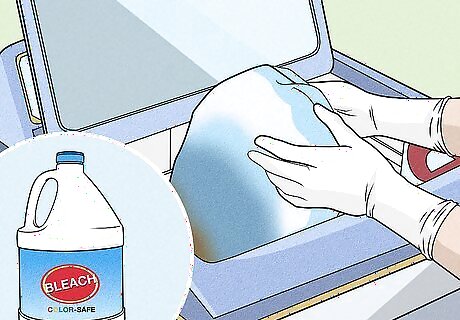
Use a normal wash cycle along with a color-safe bleach. When selecting water temperature, either opt for a warm or cold wash, since hot water can make some stains permanent. If the clothes still seem visibly soiled after one wash cycle, run them through the wash one more time. Wash the soiled baby clothes separately from the rest of your laundry. Otherwise, the poop might get on other clothes.
Wash with white vinegar for a natural cleaner.
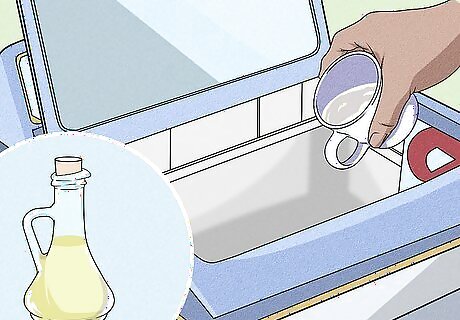
Vinegar can be a great alternative to harsher bleaches. After pre-treating the clothes with an enzyme cleaner, wring them out to remove excess water, then put them in the laundry machine along with 2 cups of white vinegar (500 mL). Wash the clothes on a warm cycle. The vinegar is a gentler, albeit powerful, cleanser that can lift even tough stains.
Use an extra rinse cycle.
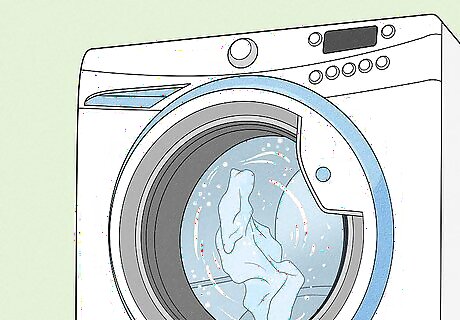
A plain water rinse gets rid of any detergent residue. Since baby skin can be sensitive, it’s important to give the clothes an extra rinse with just water before letting them dry. Run the baby clothes through your washing machine one more time, just without any detergent.
Lighten stains with the sun and lemon water.
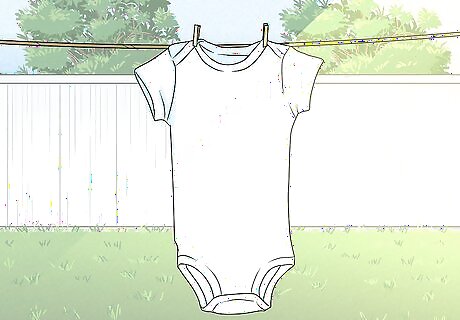
The sun can naturally bleach any remaining stains. Sunlight has the incredible ability to naturally bleach and lighten any stains. If you want to give the sun a helping hand in lightening any stains, squirt some lemon juice over the stain. After the clothes are dry, rinse off the juice with plain water, since it can make the clothes feel a little rough.
Check for any lingering stains before machine-drying.
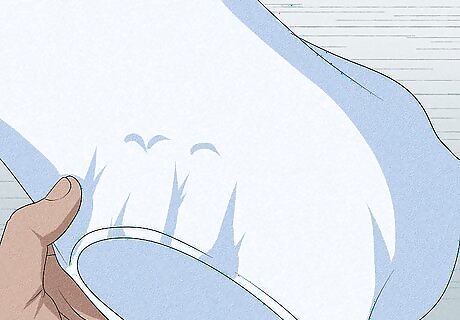
The dryer is convenient, but can also make some stains permanent. While the clothes are wet, you might not be able to notice any stains leftover. A harsh heat cycle in the dryer can make these stains permanent, so air-dry the clothes for at least an hour before transferring them to the drier. If you still see stains, run the clothes through the wash one more time, pre-treating the stain again beforehand.




















Comments
0 comment